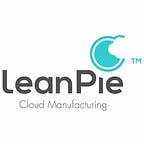Transforming marketing supply chains
We all know that business is becoming increasingly complex. The challenge is the way that most companies respond. The vast majority try and manage this complexity through additional protocols, regulation, processes and procedures. This compounds the problem as you not only have a complex issue to resolve but you also now have a very cumbersome approach to how you must about solving it. I have come across situations where approvals are required from more than ten people. How are these people supposed to know the details about what they are setting out to approve? The more steps you have and thereby the more tasks you need to complete, just extends the supply chain and delays the ability to deliver a fit for purpose and just-in-time outcome.
If you are looking for a great perspective on this, then go no further than to listen to Yves Morieux, from the Boston Consulting Group, in one of his Ted talks.
The one department that has really experienced this rise in complexity is marketing. They have not only had to cope with the rising expectation of the consumer but there has also been a fundamental shift in the way that consumers assess and engage with brands. Consumers now seek out what other consumers have to say about the brand and its offerings, rather than rely on what the brand is telling them. Brand reputation now wins over brand promise every time. In addition, with media saturation and the proliferation of engagement channels, there is a highly competitive approach to gaining the attention of the consumer and winning their hearts and minds.
Scott Brinker,who is one of the key marketing technology influencers, has developed an infographic that conveys that there are 3,874 technology companies providing solutions to marketing. So imagine the complexity of designing, developing and implementing an omni-channel campaign. It is simply bewildering. This requires a different approach to managing the activities that need to be undertaken.
One of the opportunities for managing this complexity is to adopt the principles of Lean Manufacturing. Lean Manufacturing is a systematic method for improving the performance of the entire supply chain. One of the main differences is that it is focused on reducing waste, rather than cost. In other words you identify processes or tasks that do not add value and then remove them. This benefits everyone in the supply chain and makes the supply chain that much more efficient and fast. This is a very different mindset to forcing down prices and supplier margins, with no impact on the supply chain. The cost cutting approach is just not sustainable.
James P. Womack and Daniel T. Jones distilled the key principles of Lean Manufacturing as developed in the Toyota Production System (TPS) into a methodology that could be applied to any aspect of business, such as marketing procurement. They called this lean thinking. It was a new way of assessing supply chain performance and being able to identify the waste that was inadvertently generated by the way the supply chain was managed. It consists of 5 key principles:
- Value — focus on the desired outcome as seen by the customer
- Value streams — understand and assess the entire supply chain. If five elements work well but one is broken you still have a less than optimal result. Ensure you have full transparency, clarity and control over every aspect of the supply chain
- Flow — focus on the constraints, the barriers and the waste, whether it be people’s time, materials or any other area of investment and remove them. Assess this at individual task level
- Pull — make sure that decision-making, handovers and roles and responsibilities are clear. Be precise so there is no room for misunderstanding or misalignment
- Perfection — adopt a culture of continuous improvement by always reviewing and identifying validated learnings which can then be immediately applied to any future project
LeanPie was founded on these principles and rigorously applies them to help both brands and retailers design and source retail fixtures and Point of Purchase (POP) materials. In this way we help our clients obtain transparency, achieve clarity, reduce complexity, minimise waste and enhance the level of value delivered.
More information on how Lean Manufacturing can help transform marketing can be found here. This article also introduces Agile Methodology which is more focused on innovation and creativity.
